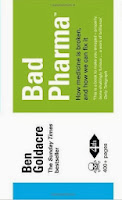Plans were announced for the launch of a Rwanda Society of Pharmacology at the close of the first International Symposium on Medicines and
Patient Safety held in Kigali 5-6 November.
The Symposium was attended by over 170
delegates and speakers from 6 countries (Rwanda, South Africa, Moroccoo, South
Africa, UK and USA). who participated in an International Symposium on Medicines and
Patient Safety was held in Kigali, Rwanda at the College of Medicine and Health
Sciences (CMHS) on Wednesday 5th November 2014, followed on 6th
November 2014 by an international videoconference on Prescribing Skills with
Professor Simon Maxwell and on Pharmacovigilance with Professor Rita
Benabdalleh from the WHO co-ordinating centre in Rabat, Morocco. The meeting
included talks on medicines and communicable and non-communicable diseases by
national and international clinical and policy experts from Rwanda, South
Africa, USA and the UK.
The
Symposium was held in partnership with Pharmacology for Africa, a
consortium of
18 Sub-Saharan countries
supported by the International Union of Pharmacology, and led by Professor
Douglas Oliver and Professor Christiaan Brink, from South Africa, both of whom spoke
at the meeting. The 3 major themes of the symposium were: educating health
professionals in safe and effective use of medicines; regulating drugs,
including pharmacovigilance and quality of medicines, reducing harm from high
risk medicines and in patients with high risk conditions.
Outcomes of the Symposium included plans to launch the first Rwandan
Pharmacology Society, publication of selected reviews and commentaries in the
international journal Health Policy and Technology, and plans for a Second International
Symposium on Medicines and Patient Safety in June 2015, themes to include
Improving Prescribing Skills and Rational Guidelines for Antibiotics.
Speakers
discussed ways to reduce risk from medicines for treating children and
expectant mothers, preventing disorders of the heart and stroke, and for
treating cancer and kidney disease. There were also round table discussions not
only on prescribed medicines, but also on the risks of over-the-counter and
traditional medicines.
Co-organizer
and Pharmacist Dr Kayumba said: “The Symposium was timely in building on
strategy in Rwanda on pharmacovigilance and on developing our undergraduate and
postgraduate educational systems for good practice in use of medicines.”
Co-organizer
and Physician Dr Musabeyezu added: “The Symposium provided important updates
for doctors, pharmacists and nurses from Referrral and District Hospitals from
throughout Rwanda on reducing risk of harm from high risk medicines often used
for high risk diseases”.
Co-organizer
and Clinical Pharmacologist Professor Singer said: "Medicines
have powerful effects to help patients. However medicines also have the
potential to cause powerful harmful effects. Education on how to ensure safe
and effective use of medicines is therefore vitally important for patients and
health services."
Pharmacology of Africa President Professor Douglas Oliver said: “Partnership with
Pharmacology for Africa brings important opportunities to improve patient
health and safety through engaging with a wide range of international experts
in education, training, clinical practice and research aimed at best practice
in use of medicines."
The symposium
was supported by the World Health Organisation, Pharmacology for Africa, the
International Union of Basic and Clinical Pharmacology, Partners in Health, the
Rwanda Social Security Board, the
University of Rwanda College of Medicine and Health Sciences, and by
unrestricted educational grants by GSK and Roche.
Information
for Editors
For further
information, including to arrange an interview with the organisers email ISMPS2014@gmail.com.















